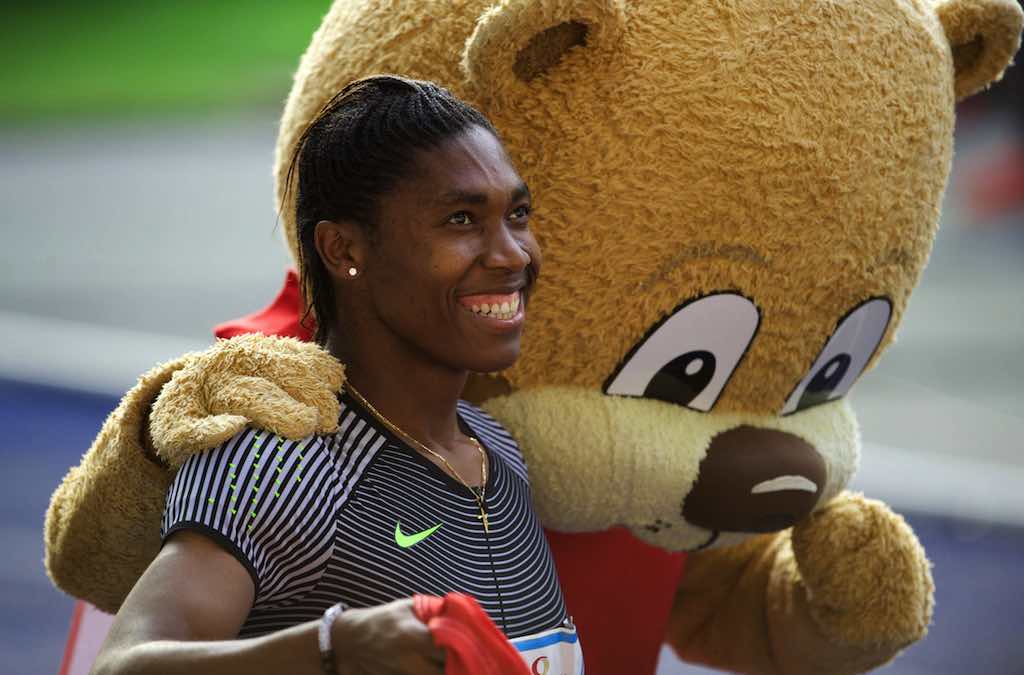‘The IAAF will not drug me or stop me being who I am’ – Castor Semenya

ISTAF 75 Internationales Stadionfest Berlin
Olympiastadion Berlin
800 m Damen
Caster SEMENYA RSA
Castor Semenya is free to run the 800m without having to take medication to depress her natural testosterone levels, after the Swiss supreme federal court ordered the IAAF to suspend its testosterone regulations for her with immediate effect.
The surprise news – which completely blindsided athletics’ governing body – means that the Olympic champion can compete in distances ranging from 400m to a mile without medication until at least 25 June. However, for now it applies only to the South African and not other athletes with differences in sexual development (DSD).
Semenya’s lawyer, Greg Nott, who hailed the decision as “morally uplifting and so good for Caster”, revealed that his team had asked for the suspension when they appealed against the court of arbitration for sport’s ruling in Semenya’s case last week.
“The court has ordered the IAAF to suspend immediately the implementation of the regulation with regard to Caster and has given the IAAF until 25 June to respond to the suspense of effect,” said Nott. “It is absolutely positive news.”
In a short statement Semenya thanked the Swiss judges for their decision. “I hope that following my appeal I will once again be able to run free,” she added.
Her Swiss counsel, Dr Dorothee Schramm, also welcomed the decision. “This is an important case that will have fundamental implications for the human rights of female athletes,” she said.
The ruling is the latest twist in the dispute between Semenya and the IAAF over a policy which requires DSD athletes to reduce their testosterone to below five nmol/L for at least six months if they want to compete internationally at all distances from 400m to a mile.
Last month Cas accepted such a policy was “discriminatory” to DSD athletes, who are usually born with testes. However, it ruled in favour of the IAAF after accepting its argument that high testosterone in female athletes confers significant advantages in size, strength and power from puberty onwards.
To read the remainder of this article please visit the Guardian

















